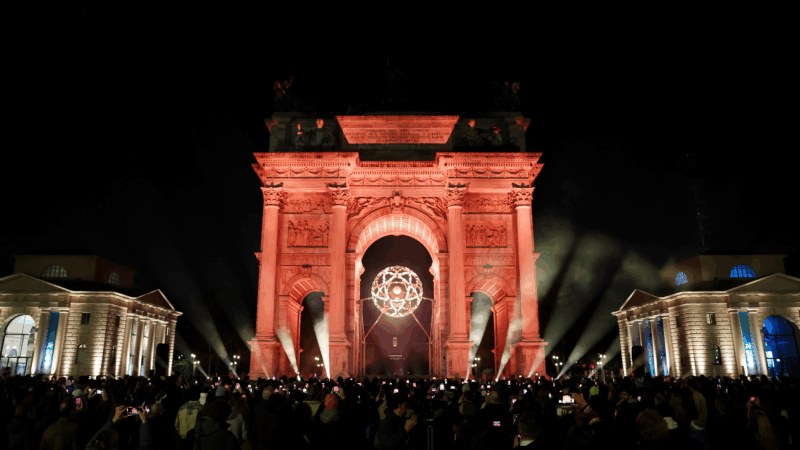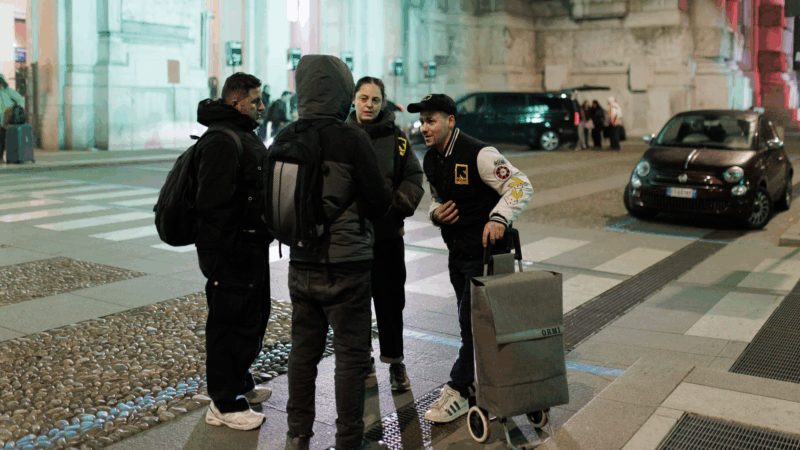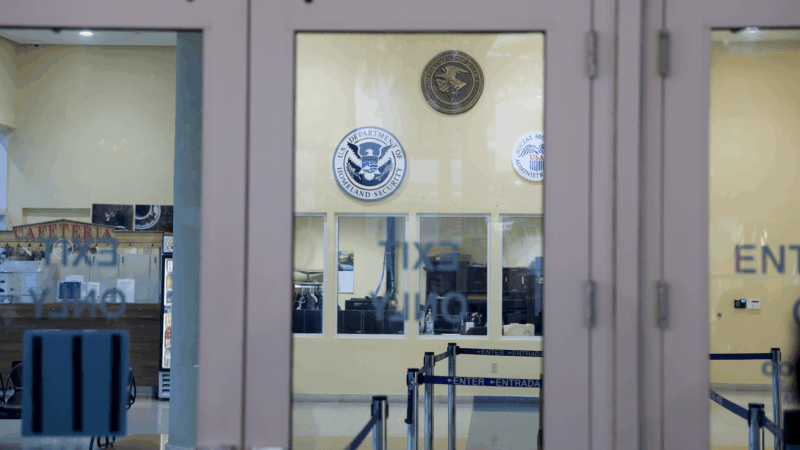Protests grow across the U.S. as people push against Trump’s mass deportation policies
NEW YORK — “ICE out of New York!”
Those were the words thousands of people chanted near the city’s Immigration and Customs Enforcement (ICE) field office, and throughout the streets of Manhattan Tuesday night as part of a series of nationwide rallies against President Trump’s immigration sweeps and the deployment of the U.S. military in California.
“There are many voices in my community that can’t be here today out of fear of what the administration is doing, so I want to be here for them,” 19-year-old Jeanet told NPR as she joined hundreds of other protesters in lower Manhattan Tuesday night.
She asked for her last name to not be included for fear of her safety. She said she wants to join the military, and that also played a role in her going to the protest.
“I feel like it’s more important for me, as somebody who is going to be part of the government, to voice my opinion and show that there can be people that are for the U.S., but still against what this administration is doing today,” Jeanete said.
Across the country, protesters also took to the streets in Chicago, San Francisco, and Seattle, Dallas and half a dozen other cities.
The Trump administration has vowed to arrest 3,000 migrants a day. To accomplish that goal, the Department of Homeland Security has conducted raids all across the country — from a parking lot in a Los Angeles Home Depot, to a Dominican neighborhood in Puerto Rico, to a meatpacking plant in Nebraska.
In New York City, the protest was peaceful. That’s a contrast with those in Los Angeles, where police and protesters clashed in some parts of town over the weekend sparked by immigration raids conducted by federal immigration agents.
The New York Police Department did not immediately reply to questions about how many arrests were made, but NPR reporters saw at least half a dozen people placed in handcuffs.
Paula Lopez, 66, said what’s happening is giving her flashbacks of when she was arrested by immigration agents in a New York factory in 1980.
“It hurts me to see families being separated, because I lived that,” Lopez, who came to the protest with her sister, told NPR in Spanish. “We come here to work … to progress — it’s not fair.”
Arfraz, a 43-year-old man from Queens, also remembers when decades ago ICE took away a family member. It was traumatizing, he said.
So, joining Tuesday’s protest felt important to him, especially for those he knows are scared.
“They can’t necessarily show up to rallies because they might get picked up by ICE, so I think we have to stand up,” said Arfraz, who asked NPR to not use his last name out of fear for his safety. “And those who are able to stand up have a higher and urgent responsibility to do it today.”
What NPR reporters will remember most about these Winter Olympics
NPR's reporters on the ground in Italy reflect on a far-flung, jam-packed Winter Olympics.
In the shadow of the Olympics, migrants search for a welcome in Milan
As Italy cracks down on migration, Milan takes a different path — offering shelter and integration to asylum seekers even as the central government tightens borders and funds deterrence abroad.
Trump to raise global tariffs. And, most say the state of the union is weak, poll says
President Trump says he is raising global tariffs to 15%. And ahead of the president's address tomorrow, most Americans say the state of the union is not strong, according to an NPR poll.
U.S. has a quarter fewer immigration judges than it did a year ago. Here’s why
The continued drain of personnel from the already strained immigration court system has contributed to depleted staff morale, mounting case backlogs — and floundering due process.
Poll: Most say the state of the union is not strong and the U.S. is worse off
Ahead of the State of the Union address on Tuesday, evidence continues to mount that President Trump is facing political headwinds.
Influencers are promoting peptides for better health. What’s the science say?
The latest wellness craze involves injecting these molecules for athletic performance, longevity and more. Scientists say the research isn't keeping pace with the health claims.







